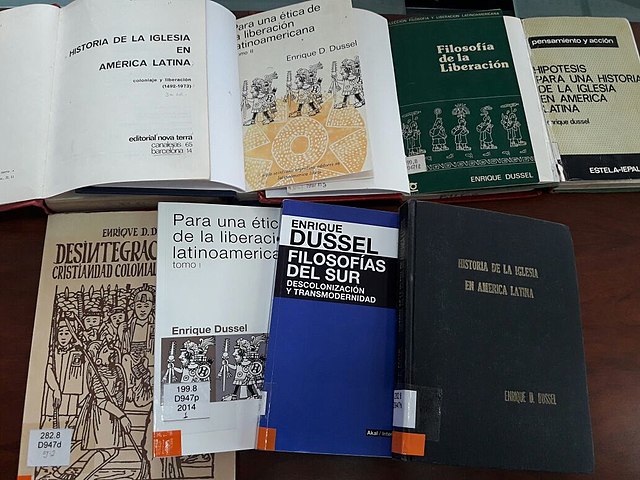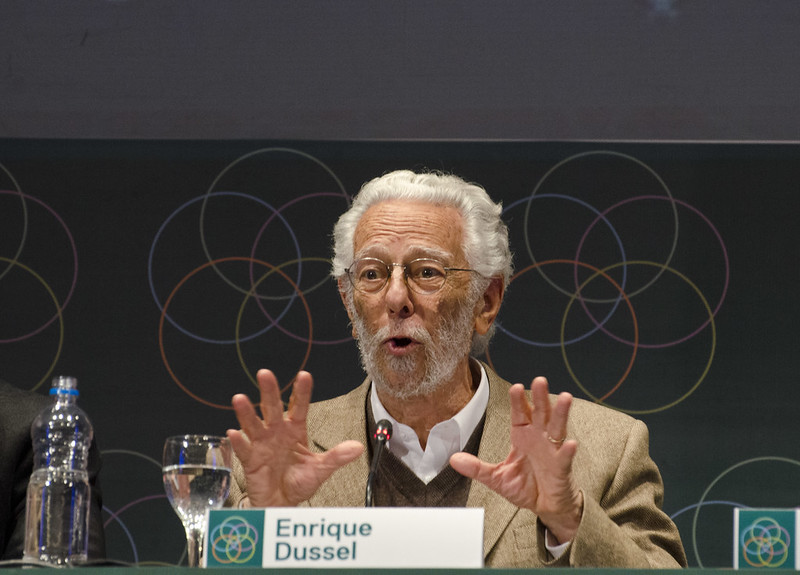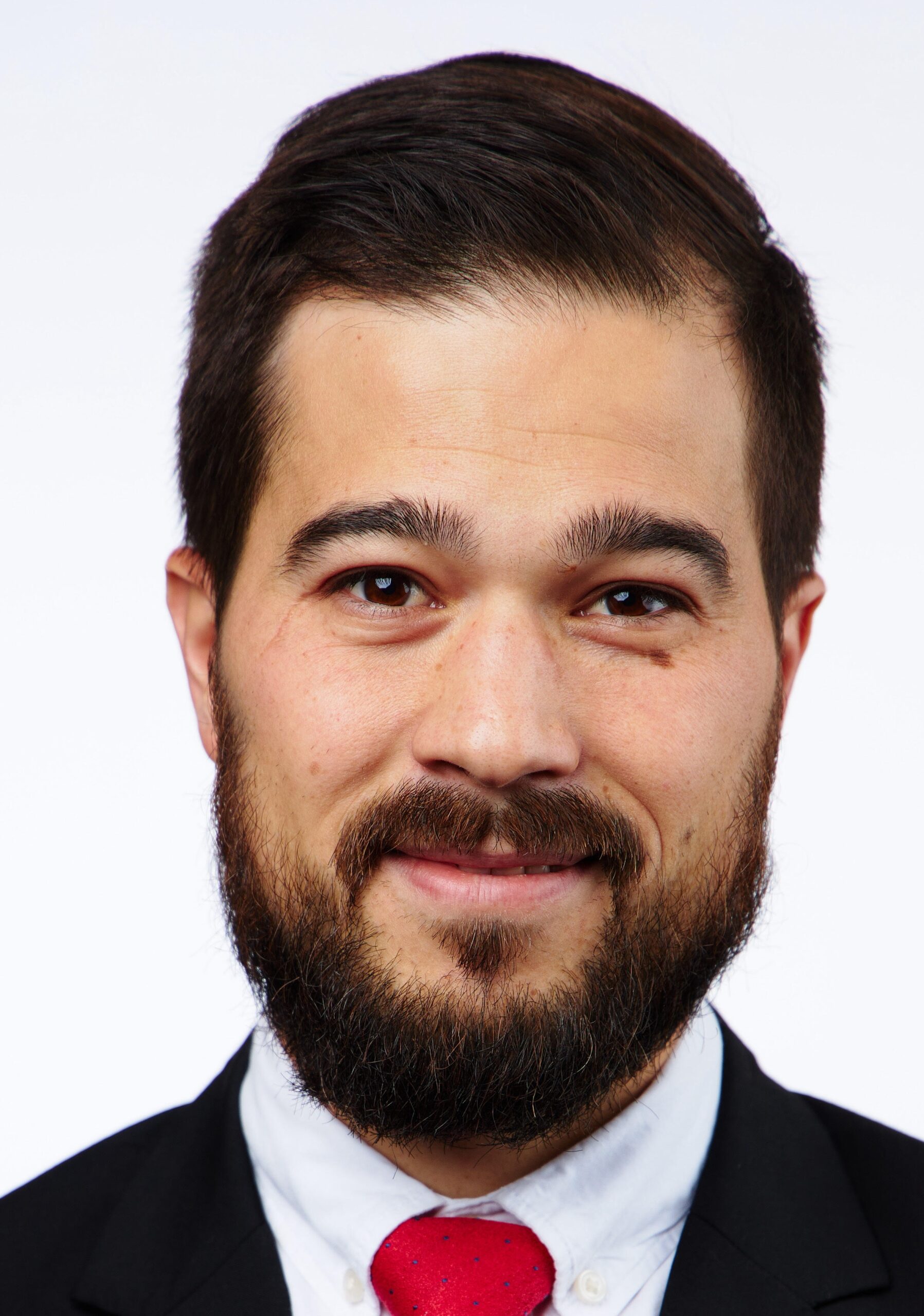
We might be approaching a time when we will speak of the first generation of liberation theologians and philosophers as ancestors. Since the late-1960s, theologians and philosophers in this tradition have created pathways for a radical rethinking of theology and religious studies, for the theological critique of modernity and of capitalism, and for theorizing the liberative power that religious communities can exercise. This generation is passing on, leaving an irreplaceable void in liberationist and decolonial thinking and activism. On November 5, 2023, the Argentine Mexican philosopher Enrique Dussel passed away, joining a cloud of ancestral witnesses that will continue to demand from the living that we do not let go of the call to liberation. Undoubtably, the commitment to liberation is the signature trait of Dussel’s intellectual and political work. It informed a double gesture that integrates the political demand to stand in solidarity with the oppressed as well as a form of epistemic solidarity that integrates non-hegemonic ways of knowing for the sake of decolonization.
Ever since Dussel’s passing, I have been reflecting on how impossible it is to overstate the force of his claim in The Invention of the Americas that there could not have been a Cartesian I think, therefore I am, without Hernán Cortés’ I conquer, therefore I am. Who could forget that remarkable preface and its strong delineation of modernity? “Modernity dawned in 1492 and with it the myth of a special kind of sacrificial violence which eventually eclipsed whatever was non-European” (12). There is not descubrimiento (discovery) without encubrimiento (effacement, covering over). Dussel shaped generations of thinkers whose starting point was this framing of modernity as a sacrificial project. For theologians like myself, Dussel contributed to the inception of liberation theology through his books on the history of Latin American Christianity, which emphasized the passage from colonial Christianity to a Christianity of liberation. And Dussel should also be situated as a key figure in the development of the theological critique of capitalism alongside figures like Franz Hinkelammert, who also passed away in 2023.
Dussel’s commitment to provincializing European philosophy as well as to establishing the grounds for a Latin American philosophy of liberation date back to some of his earliest texts. In his 1968 lectures on philosophical anthropology, for example, Dussel framed his project by juxtaposing Heidegger’s concept of “ontological forgetting” with the axis of colonial modernity. Dussel understood that an open task for philosophy was to identify the historical situations and cultural patterns that have been forgotten—more like erased—by colonial epistemologies (194). These forgotten fragments, as it were, form the substance of Dussel’s initial articulation of a philosophy of liberation. According to Alejandro A. Vallega and Ramón Grosfoguel, Dussel finds in Heidegger’s “appropriative de-struction of the history of Western philosophy elements that will be useful for the destruction of Western colonialist systems of oppression” (11).
Dussel understood that an open task for philosophy was to identify the historical situations and cultural patterns that have been forgotten—more like erased—by colonial epistemologies.
Early on as well, Dussel encountered Emmanuel Levinas’s Totality and Infinity, a work that caused in him a “subversive disorientation” and led him to question “all that he [had] learned thus far” (7). Levinas instigated Dussel to consider the dimension of exteriority and the fundamental category of the “Other.” These are concepts that Dussel quickly appropriated to theorize a passage beyond the logic of colonial modernity. While “disorientating,” Dussel’s encounter with Levinas confirmed to him something he had intuited during the time he spent in Israel, between 1959 and 1961. And that is: that the Hebrew tradition may be said to present an alternative view of humanity, one that affirms the historicity of the human subject and that places a special emphasis on justice, the moral agency of the oppressed, and the political imperative of liberation. This type of commitment, formulated in Dussel’s 1969 book, El humanismo semita, remained with him throughout his career. Dussel concluded his response to Levinas by situating the Levinasian call to the face of the other in the context of the colonial conquering ego. Dussel pushed for a historicization and a politization of the Other, naming it in its historical enfleshment as a “Native American, an African, or an Asian” (8).
It is possible to say Dussel’s incipient efforts in decolonization were marked by his investigations of existentialist philosophy and phenomenology, his knowledge of the history of Latin America, his encounter with Levinas, and his participating in the formulation of Latin American liberation philosophy and theology. A defining element of his thought would be added later on.

In 1975, Dussel was forced to leave his native Argentina after receiving death threats from the military junta that ruled the country. He sought refuge in Mexico, where he remained for the rest of his life. Dussel tells that his move introduced him to an intellectual circle with deep ties to Marxism. That marked an important passage in Dussel’s trajectory that eventually led him to a deep exploration of the Marx archives. The result of that research were four books, published between 1985 and 1993. Dussel’s reception of Marx was marked by his previous political and philosophical commitments to liberation and to the category of the Other. According to Eduardo Mendieta, Dussel read Marx’s Capital as an ethical book based on a radical critique of capitalism as a system that creates wealth at the expense of human suffering and exploitation (8–9). These claims are made explicit in Dussel’s final book on Marx, The Theological Metaphors of Marx (whose English translation will be published for the first time soon). In it, Dussel refers to Capital as a theological work that sought to expose the historical and material bases of an idolatrous system of accumulation and exploitation, a true demonic system that deifies injustice (175). For Dussel, Marx was an “implicit theologian” who put theological metaphors to use in the task of exposing capitalist exploitation (131).[1]
The path I have sketched in Dussel’s thought suggests a necessary alliance, what I’m inclined to call an epistemic solidarity between decoloniality, the critique of capitalism, and theology. That is to say, Dussel’s commitment to liberation is what guided him in the path of decoloniality but he walked this path precisely because he understood the task of decolonization under a certain theological register. That register was a certain allegiance to the image of a liberator God, a God with whom one stands “more or less as a comrade,” to cite an intriguing formulation once given by Paulo Freire. Enlisting God as such a comrade, Dussel interrupted the “holy alliance” (Marx) between the religious establishment and coloniality. But he also pushed for a renewed understanding of religion as an active force in the shaping of a world beyond colonialism. Dussel’s work in theology and religious studies embodies the task of decolonization by building upon the suppressed histories and ways of knowing of colonized communities and their spiritualities. Epistemic solidarity, as Dussel modeled so well in his writings, integrates multiple forms of suppressed knowledge for the sake of justice and liberation.
These are tasks that remain open for those of us who have learned so much from Dussel’s texts and teaching. There is therefore grief for his passing. As the grief for, and the farewells to, the first generation of liberation theologians and philosophers continue to meet us, the living will need to develop strategies to enlist these ancestors as sources for our efforts in the direction of decolonization. The task of mourning, always labor intensive, is now open for newer generations to whom the project of decolonial thought and of Latin American liberation philosophy and theology has always been associated with Dussel’s name.
[1] I explore this claim as well as Dussel’s intellectual trajectory leading up to his encounter with Marx in an upcoming essay, “The Haunting of Liberation: Derrida and Dussel, Three Decades Later,” under review with the Journal of the American Academy of Religion.

